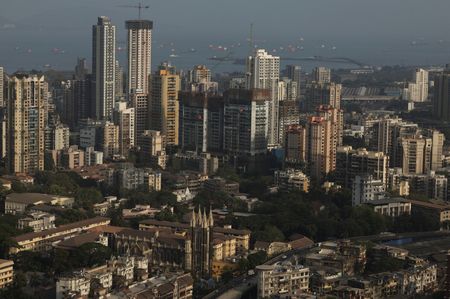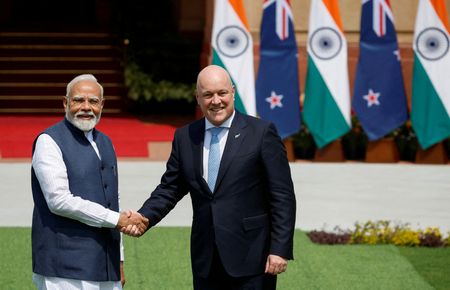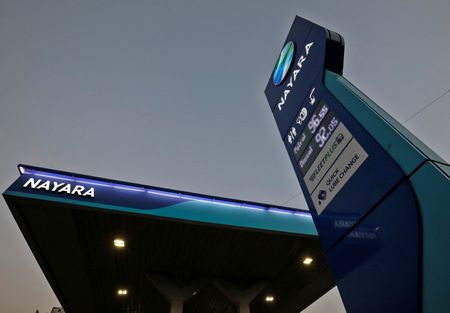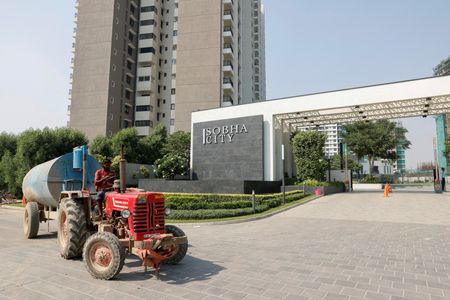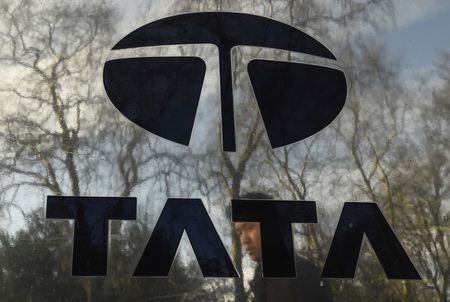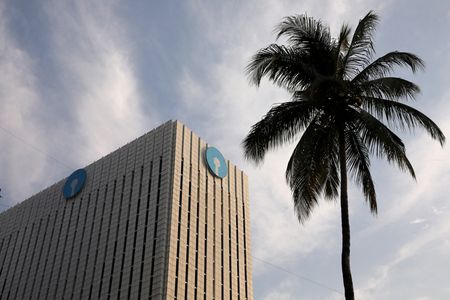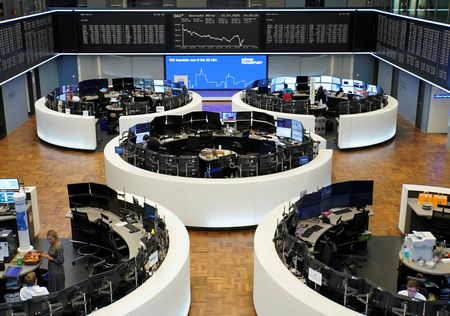By Anant Chandak
BENGALURU (Reuters) -Growth in India’s private sector remained robust in July, supported by strong manufacturing and international demand, but rising inflation and weaker employment generation tempered the expansion, a business survey showed.
Moderation in overall growth came alongside a drop in business confidence to an over two-year low. Firms expressed concerns over rising price pressures and heightened competition while uncertainty surrounding trade negotiations with the U.S. also likely weighed on sentiment.
July’s HSBC Flash India Composite Purchasing Managers’ Index, compiled by S&P Global, registered 60.7, a slight dip from June’s final reading of 61.0. The figure remained well above the 50-level that separates growth from contraction and marked sustained expansion for the past four years.
“The strong performance was bolstered by growth in total sales, export orders and output levels. Indian manufacturers led the way, recording faster rates of expansion than services for all of the three aforementioned metrics,” noted Pranjul Bhandari, chief India economist at HSBC.
Manufacturing was the engine of growth this month with its flash PMI climbing to 59.2, the highest reading in over 17 years, from 58.4. In contrast, the services activity index fell to 59.8 from 60.4, indicating a softer albeit historically sharp rate of expansion.
Overall new orders expanded at the fastest pace in a year, bolstered by robust demand from overseas clients in Asia, Europe, and the U.S.. New orders for manufactured goods, in particular, rose to a near five-year high.
Bhandari noted that despite the strong performance, there were signs of caution.
“Business confidence fell to its lowest mark since March 2023, while employment growth moderated to its weakest pace in 15 months,” she said.
A recent Reuters poll of independent economists highlighted growing concerns about joblessness and underemployment in the world’s fastest-growing major economy, which has failed to create enough well-paying jobs for millions of youth entering the workforce each year.
According to recently introduced official government data the unemployment rate remained steady at 5.6% in June but the way this is measured is inaccurate, economists say.
Meanwhile, inflationary pressures intensified with both input costs and output charges rising in July. Firms reported higher prices for materials such as aluminium, cotton, and foodstuffs and passed these higher expenses on to clients.
Retail inflation eased to an over six-year low last month due to lower food prices but any acceleration in inflation could dampen expectations for more interest rate cuts from the Reserve Bank of India.
(Reporting by Anant Chandak; Editing by Kim Coghill)

